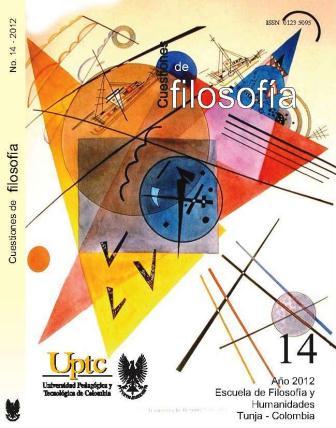Del rey filosofo al pez torpedo: metáforas sobre la enseñanza de la filosofia

Abstract
ResumenDel rey filósofo al pez torpedo: metáforas sobre la enseñanza de la filosofía. La presencia de la filosofía como asignatura en la educación secundaria parece estar amenazada en algunos países. Es importante defender esa presencia, aunque eso sólo es posible si defendemos un específico modelo de enseñanza yaprendizaje de la Filosofía, que no suele ser el más compartido en la actualidad. Ahora hay un cierto predominio delmodelo basado en lametáfora platónica del Rey Filósofo, que acentúa el valor de la sabiduría filosófica y el papel del profesorado como transmisor de lamisma. Frente a estemodelo, se defiende otro basado en lamétafora
del pez torpedo, en la que se describe eldiálogo socrático como lamanera de hacer filosofía en el aula orientada a despertar y desarrollar en el alumnado la capacidad
de pensar por símismo de forma crítica ycreativa.Así entendido, el aprendizaje de la filosofía debe estar presente en la educación formal desde el principio, a los tres años, hasta el final, cuando se termina la adolescencia.
Palabras clave: enseñanza de la filosofía, diálogo socrático, rey filósofo.
Abstract
From the philosopher king to the torpedo fish: metaphors on the teaching of philosophy. The presence of philosophy as a discipline in secondary education seems to be endangered in some countries. It is important to defend its presence, nevertheless this is onlypossible ifwe defend a specificmodelofteaching and learning philosophy,
which isnot usuallythemost popular today.There isnowa certain dominance ofthe model based on the Platonicmetaphor of the philosopher king,which emphasizes
the value of philosophicalwisdomand the role of the teacher as the personwho hands down all this tradition to students. This article defends a different model, based upon themetaphor of the torpedo fish,which describes Socratic dialogue as thewayof enacting philosophyinthe classroom, aimed at waking students'minds and fostering their abilityto think for themselves in a critical and creativeway.Thus understood, the learning of philosophyneeds to be introduced into formaleducation frombeginning: fromthe age ofthree until the end of adolescence.
Keywords: philosophyteaching, Socratic dialogue, philosopher king.